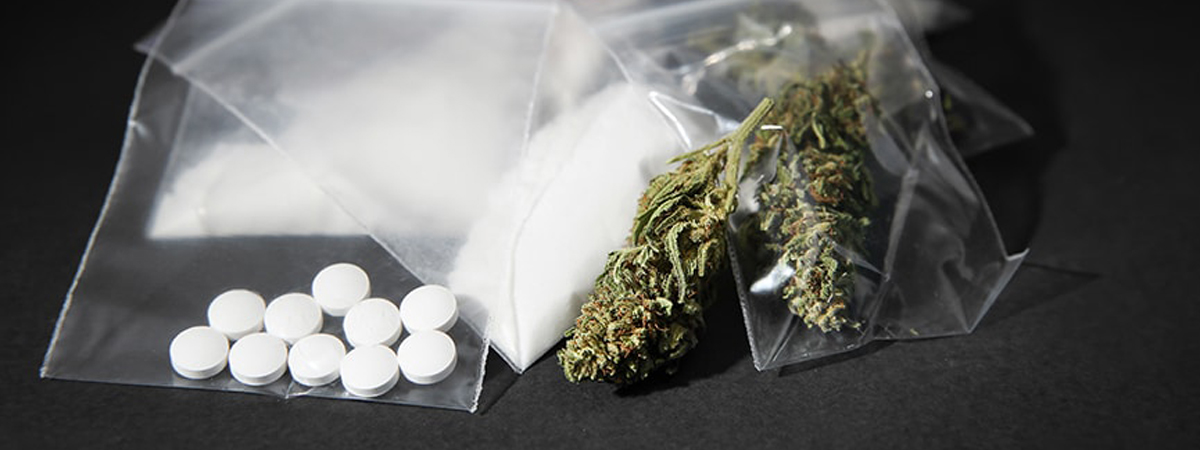Charged With Drug Sales in Arizona? Current Laws and Defenses You Should Know About

Arizona takes illegal drugs seriously. Whether it’s intoxication, possession, or trafficking, Arizona’s drug laws are strict and can hold severe sentences for those found guilty of breaking them. So what should you do if you’ve been charged with violating drug sale laws? First, talk to a lawyer – whether they’re court-appointed or someone on your personal defense team. From there, it’s important that you understand what exactly the Arizona laws dictate and possible defenses for your case.
Current State of Illegal Drugs in Arizona
Since 2015, the Arizona Department of Public Safety has tracked significant increases in illegal drug possessions and seizures throughout the state. More than ever, illegal drugs have become a prominent issue within the state. In 2016 alone, more than 28,000 pounds of drugs were confiscated through investigatory work – a 19% increase from the previous year.
Depending upon the drug in question, the related penalty may fall into one of three categories: dangerous drugs, narcotics, or marijuana. Possession of a dangerous drug (e.g. methamphetamines, heroin) is a class 4 felony with a fine of $2,000 or three times the value of the drug(s) possessed. A dangerous drug conviction may also result in up to 3.75 years in prison. A narcotics possession (e.g. cocaine) is also considered a class 4 felony; bringing with it the same consequences as a dangerous drug conviction. Finally, marijuana possession of less than two pounds is considered a class 6 felony and, again, carries the same consequences as dangerous drugs and narcotics.
Specifically in reference to marijuana, these laws will be altered somewhat by the recently passed Proposition 207. Proposition 207 outlines legislation that legalizes recreational marijuana in Arizona for citizens 21 and older. A 16% sales tax will be placed on all purchases of recreational marijuana. This money will then be directed to a number of organizations throughout the state.
For individuals who qualify for the use of recreational marijuana, individuals can be in legal possession of up to 2.5 ounces (or 12.5 grams of concentrate as well as up to six marijuana plants, which can be grown on a qualified individual’s property.
People charged with the possession of up to 2.5 ounces of marijuana at any point in the past will have the opportunity to petition the court to have their records expunged as early as July 2021.
Harsh Punishments for Opioid Possession
Some Arizona lawmakers are trying to push for harsher sentencing for those convicted of heroin and fentanyl possession. Currently, Republican Representative Steve Pierce is pushing forward with legislation that would raise the minimum prison sentence to five years. The current minimum sentence is 2-4 years depending on the drug; dangerous drugs carry a higher minimum sentence.
This particular bill is being met with some criticism due to its broadness. Others argue that those with opioid addictions would not be swayed by an increase to the minimum prison time. Despite this, legislators on both sides of the aisle can agree that opioid addiction and possession is a quickly escalating problem in Arizona.
Arizona Drug Distribution Laws
So now that we’ve touched on drug possession laws and punishments in Arizona, let’s take a look at drug distribution laws (selling, trafficking, etc.). According to Arizona law, having a certain amount (or more) of a drug in your possession automatically suggests the intent to sell: two or more pounds of marijuana, nine or more grams of methamphetamine, eight or more powdered grams of coke or ¾ or more grams of rock coke (crack), one or more grams of heroin, or ½ or more millimeters of LSD. Meeting or exceeding any of these amounts will be recognized as “intent to sell” by Arizona law and you will be charged as such.
You can also be charged with drug trafficking in Arizona if you knowingly transport illegal drugs with the intent to sell, import illegal drugs into the state, offer to transport illegal drugs (with the intent to sell) or import illegal drugs into Arizona on someone else’s behalf, selling or transferring illegal drugs, or offering to sell or transfer illegal drugs. Drug distribution is a class 2 felony and carries a minimum of 2 years (maximum 12.5 years) and maximum fine of $1,000 plus additional charges and fees.
Depending on the individual circumstances of the defendant, the court may rule to lessen the sentence to a class 1 misdemeanor. (This would be for a defendant with no prior felony charges.) However, possession or distribution of certain drugs do not qualify for this leniency; specifically, dangerous drugs such as methamphetamine, amphetamine, phencyclidine, diethylamide, or lysergic acid.
Reasonable Defenses for Drug Possession
When it comes to defending yourself against drug possession and distribution charges, context is key. This is something your lawyer can walk through with you, but we’ll go over a general overview of what some of your options may be depending on your particular circumstances at the time of your arrest.
#1. A lack of knowledge. At the time of your arrest, you were unaware that you were in possession of the illegal drugs.
#2. Illegal search. The drugs were confiscated during an illegal search by the police.
It is important to know that not all legal searches and seizures need to be completed with a warrant so long as there is probably cause. Any search conducted without a warrant that has been signed by a judge is considered a “warrantless search.”
A warrantless search, seizure, and/or arrest might be considered legitimate in the eyes of the law during the following circumstances: felony arrests in public, traffic stops for reasonable suspicion, as well as roadside checkpoints among others.
#3. Valid Prescription. You have a valid prescription for the drugs in you possession at the time of arrest. Aside from a select number of physician-prescribed opioids, this defense is largely focused on medical marijuana.
Arizona is one of 33 states in the U.S. to have a state-wide medical marijuana program. As of 2019, there were nearly 200,000 cardholders throughout the state – a number which is continuously growing. Arizona medical marijuana cardholders have the right to purchase, possess and consume marijuana (within specified limits).
As previously mentioned, Arizona citizens voted to legalize recreational marijuana in the recent 2020 election, which will no doubt affect the way these laws are written, structured, and interpreted (giving you more leeway for your defense). According to Proposition 207, you can legally be in possession of up to 2.5 ounces at any given time (starting on November 30th, 2020).
#4. Religious Purpose. The drugs you are in possession of at the time of your arrest are intended for a religious purpose.
#5. Entrapment. Your arrest was due to being “trapped” or “set up” by officers of the law. Once again, this defense is highly dependent upon your particular circumstances and will require you to be specific about the ways in which you were set up, your rights were suppressed, etc.
In Conclusion
Defending yourself against charges of drug possession, trafficking, and/or distribution can feel like an uphill battle. Do yourself a favor and immediately reach out to a lawyer if you are arrested for any of these charges. An experienced criminal lawyer – specifically, a criminal lawyer with a background in drug-related crimes – will be able to walk you through your options and help you understand the laws as they relate to your situation.


















